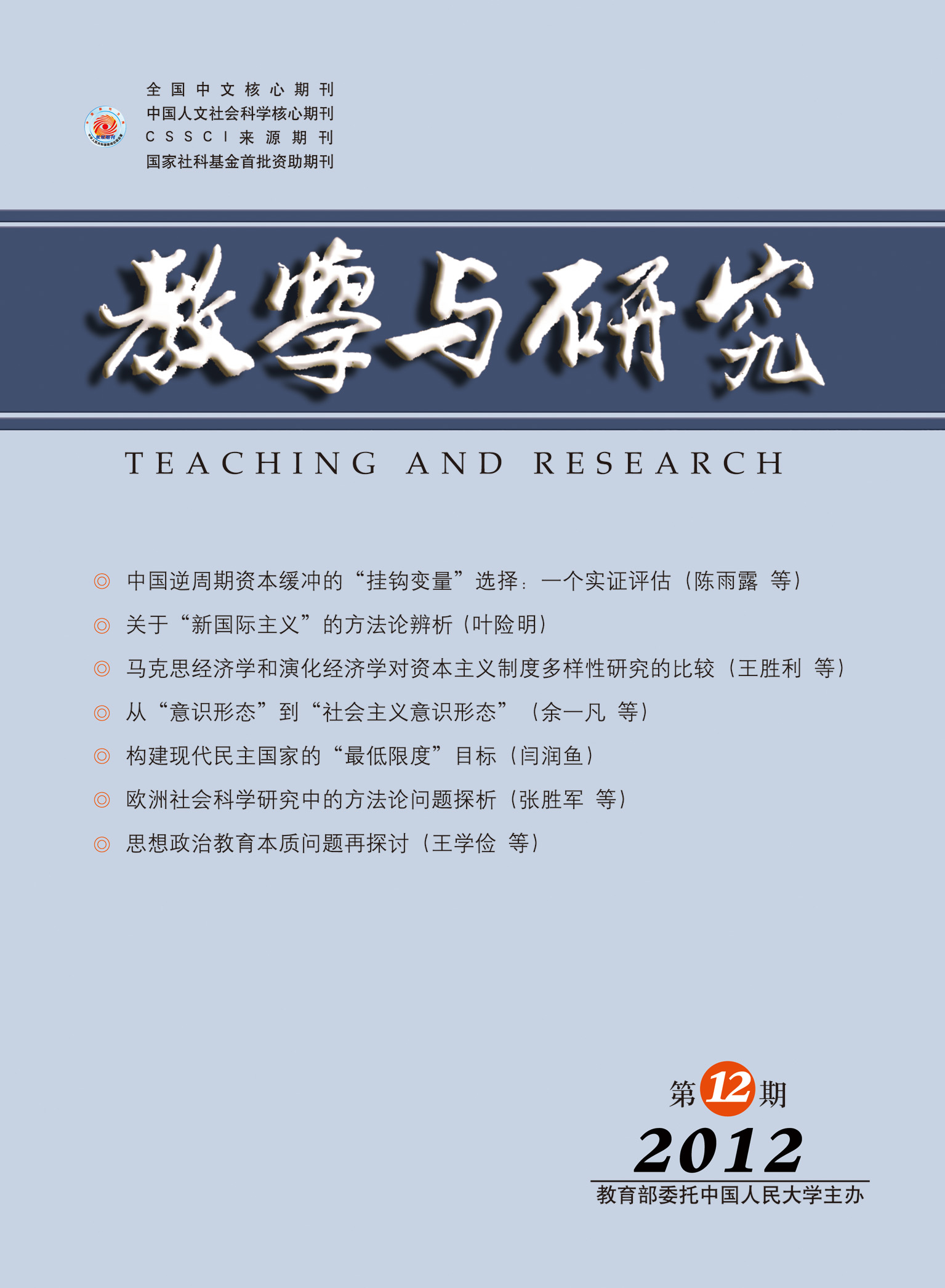|
|
Reexamination of the Nature of Ideological and Political Education
WANG Xue-Jian,GUO Shao-Jun
2012, 46 (12):
61-67.
DOI:
Although no consensus is reached on the nature of ideological and political education among Chinese scholars, three basic ideas have been formed. The authors hold that before a scientific interpretation of the nature of ideological and political education can be made, three logical questions must be raised about the connotation of “nature”, the definition of “ideological and political education”, and “the nature of ideological and political education” as a concept. In addition, the right path of ideological and political education should be chosen and explored. The path should cover the categories of evolution of origin, objective practice, special contradiction, the fundamental law, phenomenon of characterization, essential attributes, basic contents, major functions, target subjects; and its own characters as well. Based on the logical questions and explorations of the path discussed above, the following conclusions are reached. The nature of ideological and political education must be unitary, indicating that it is a special administrative activity. The nature of ideological and political education should also be three-dimensional and be divided into four qualitative levels.
Related Articles |
Metrics
|



